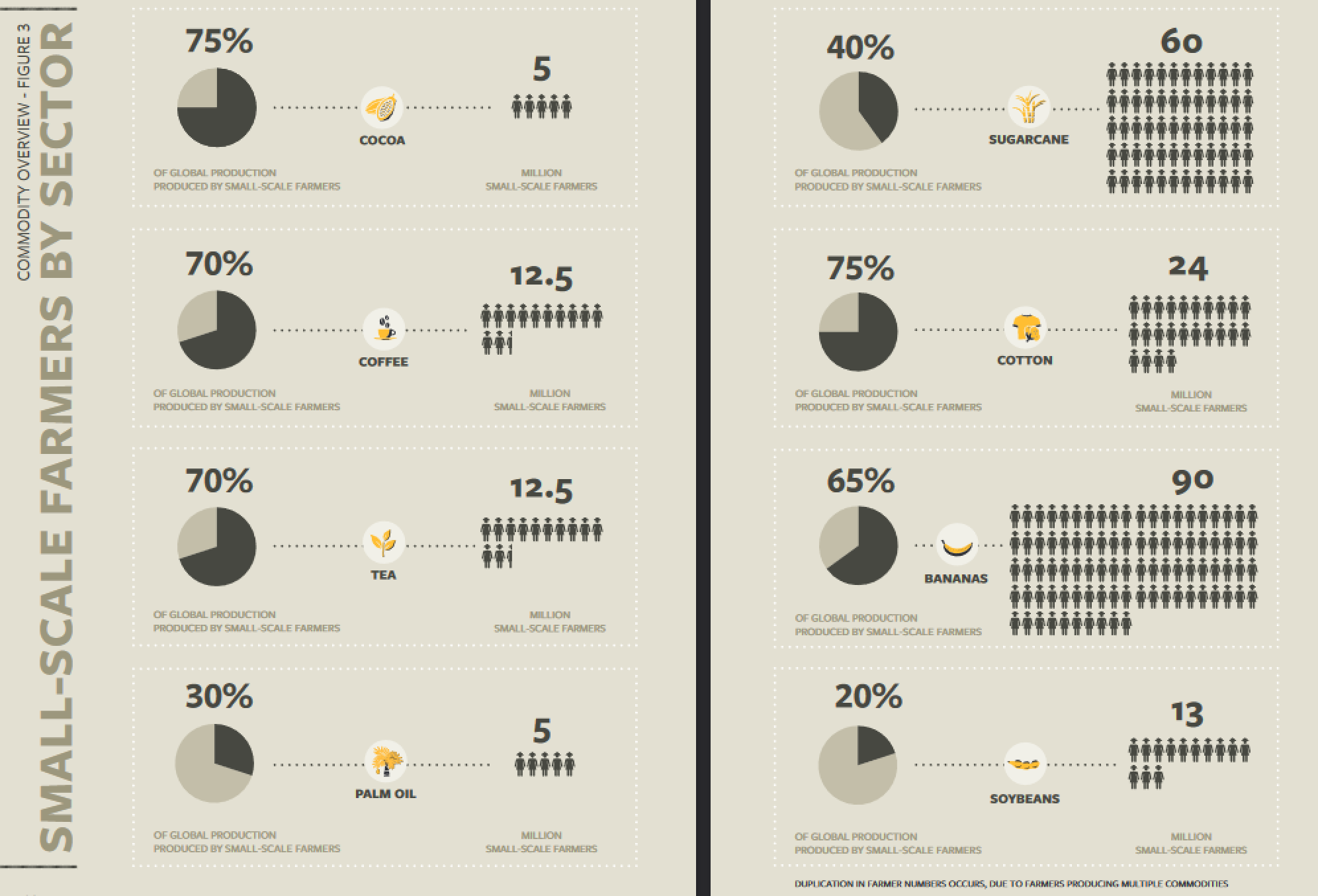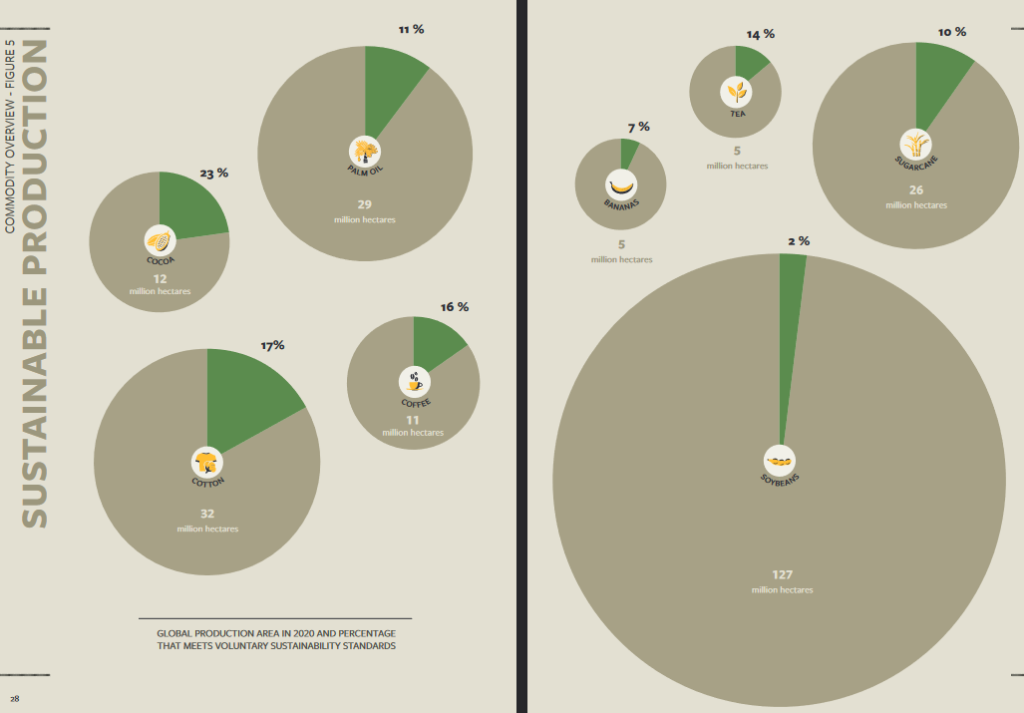The story of global agriculture is largely one of small farms, as small-scale operations account for 90% of the 570 million farms around the world and are responsible for a notable share of the world’s food, feed, fiber, and other products.
This Small Farmer Atlas explores the experiences and expectations of small-scale farmers in global value chains. This first edition is centered around the examination of eight agricultural value chains that have an international scope: bananas, cocoa, coffee, cotton, oil palm, soybeans, sugarcane and tea.
10,000 small-scale farmers have been surveyed in 18 countries. The purpose of these interviews was to gain insights into how they view sustainable development, particularly regarding their household income, access to markets, and utilization of natural resources.
Our research shows that nearly half of farmers who cultivate crops like bananas, cocoa, soybeans, and sugarcane are dissatisfied with their income, which they feel is inadequate given the amount of effort they put into farming activities. Similarly, about one third of coffee and tea farmers share the sentiment. However, the situation is notably different for cotton and oil palm farmers, with two thirds of them content with their income, which covers their basic needs. It’s worth noting that even farmers who express satisfaction with their earnings acknowledge that their income remains insufficient for building resilience to market volatility or climate-related shocks.
Half of the farmers express dissatisfaction with their access to markets for their produce, with export markets being especially challenging for those who grow crops like bananas, sugarcane, cocoa and tea. The vast majority of farmers, nearly two thirds of them, struggle with a lack of financial resources essential for adapting to the impacts of climate change.
Furthermore, across all countries farmers express grave concerns about the deteriorating quality of soil and the severe scarcity of water for irrigation.
These shared challenges underscore the fact that working in a lengthy, export-oriented commodity chain is too much of a straitjacket for farmers. It reveals the importance of two additional drivers:
Firstly, the crucial need for profit-sharing across the agricultural value chain that directly benefits farmers, improves their business case so they can invest in their farms, and enables them to access finance;
Secondly, the need for systemic changes that cater to the requirements of small-scale farmers and the need for building wealth in the broader community.


| Year of publication | |
| Publisher | Solidaridad |
| Geographic coverage | Global |
| Originally published | 21 Jun 2023 |
| Knowledge service | Metadata | Global Food and Nutrition Security | Food security and food crisesSustainable Food Systems | CoffeePalm oilSmallholder agricultureSmallholder farmer |
| Digital Europa Thesaurus (DET) | resilienceadaptation to climate changeredistribution of incomeCocoaincomeAgriculture |
